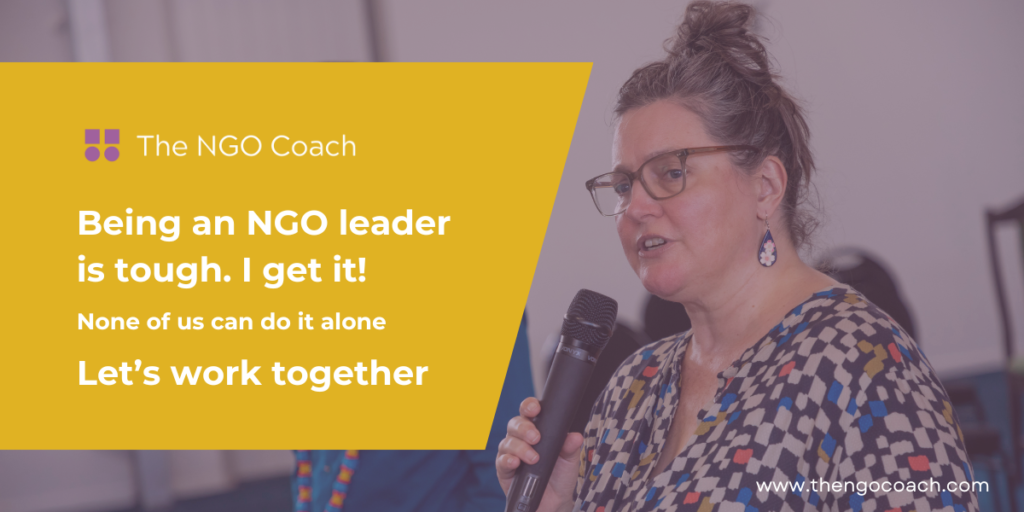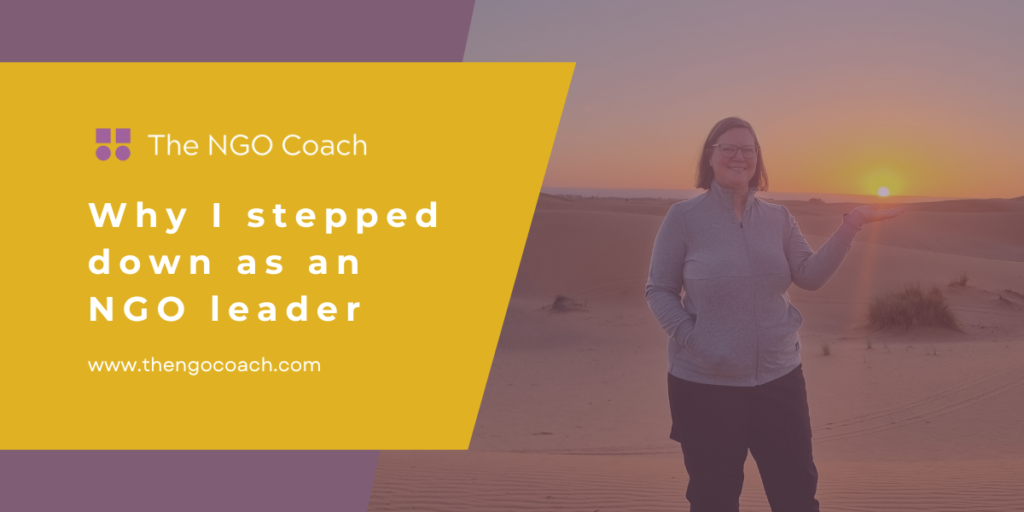This blog has been swished through my mind over the past 6 months since I finished my journey as Kaiwhakahere Matua / Chief Executive of Hui E! Community Aotearoa. I had days when I wondered why I was stepping down from a job I loved, for an organisation I loved. I also had days when I wondered if I should find another CEO role for another charity for multiple reasons. But in the end, I made the decision it was the right action at the right time for me to step down as an NGO leader (yes, for me, just for me).
It’s been a reflective time looking back over 15 years of leading charities, both voluntarily and in paid roles. I first started volunteering at 11 years old and it birthed a lifelong passion for contributing and giving to build a better world for us all to benefit. When I finally moved into being a community leader, it fully lit my fire and I knew I’d found my tribe.
As I finish up, I thought I’d take the time to share the 3 primary reasons I’m stepping aside (I won’t bore you with the complex other 20 reasons!):
1. I’m bloody tired!
Running a charity with a huge mandate (hey, there’s 115,000 community groups across Aotearoa if you didn’t know) where we were tasked with representing and supporting those groups while advocating for their needs was so tiring. All that mahi with very limited resources and a baseline that never stretched far enough despite our growth. We managed our incredible output (we were chronic over-deliverers no matter how hard we tried to do less) through partnerships, expanding our relationships and reach, and many skilled volunteers. It was, quite frankly, exhausting. Couple that with COVID responses and major weather events, and it just didn’t seem sustainable energy-wise in the long-term.
Also being the driver for change, out front, being a disrupter, challenger and persuader takes A LOT of energy. I was out front working on changing hearts and minds of Ministers, government officials, philanthropic funders, business professionals and at times, community groups themselves. I lost track of how many people I spoke with over my nearly 4 years with Hui E! Sometimes the kōrero was so intense that I needed to literally lie down afterwards and take a moment to process and recover.
Someone who had held a similar role described this type of tiredness as ‘bone-weary’. That summed it up well for me. No matter how much I rested, how much I focussed on shifting my practice, I continued to feel exhausted by what we were trying to collectively achieve. From the outside I looked calm and together, but really my feet were paddling like crazy under the water.
The sacrifice of time given to my role came at a big sacrifice of time for other parts of my life – my personal wellbeing, my relationships, my social life, my recreation, my interests, my health. At a certain point, I tipped into thinking that I just wanted to be prioritising time more into other areas of my life and building my future that way. At Hui E! we like to call it ‘personal care’ versus ‘community care’.
2. I want to step aside to allow new leaders through
There are soooo many incredible, diverse, and super smart leaders in their 30s and 40s coming through. They have more energy, globalised worldviews, new ways of working, and new visions for our future. But to enable them to step forward, those of us older need to get out of the way.
I clearly remember being in my late 40s and going for a role I really wanted. I was gutted when they gave the role to someone in their mid-60s. I couldn’t possibly compete with someone who had another 15 years of experience. I knew that person wasn’t a fit for the role and they wouldn’t enjoy the challenge of running a charity with small resource. Sure enough, they only lasted 9 months in the role. It made me wonder how I could get a leadership role when Boomers were still hanging on into their 60s and 70s (and actually 80s too!). I pledged never to be that person going forward.
I decided instead I wanted to be someone who was helping support new and emerging leaders through and helping them build their own sustainable practices. I didn’t want to be one of those middle-aged Pakeha women running a charity for 10+ years and not showing any signs of letting go. I also think it’s important that no community group pivots continually around one person. That’s not good for the group or the person themselves. It creates a lot of risk and doesn’t build a resilient, sustainable organisation.
3. I want to focus on my own health and wellbeing
Health and wellbeing are really tough to prioritise in big roles. I wish I was alone in this, but I have watched, spoken to, and supported so many community leaders over the years who have struggled with this area of their lives (check out Janie Walker’s podcast as an example). It’s helped me recognise that I wasn’t alone in my struggles.
I began last year with a renewed focus on my health. This grew into many months of new ways of prioritising my wellbeing. I just couldn’t work out how to make it sustainable. I was never sure where overwork, stress, menopause, autoimmune issues, and adrenal challenges started and ended. Which caused what? It’s been almost impossible to tell. It’s all related anyways and long-term stress has an incredible impact on the body.
What I do know is that I have watched many, many leaders develop both short and long-term health issues and diseases. I’ve watched those who have ended up in hospital when their health issues got really severe. I’ve watched exhausted community leaders pushing through when I really just wanted to tell them to get into bed for a good rest (I’m sure they wanted that too!). I’ve watched leaders’ burnout and leave the sector for good. It’s not good and it’s not sustainable and I decided I wanted more in my life. The sacrifices were too great.
In the end, I made my decision that my health has to be my number 1 priority. For that, I need less stress, less responsibility, more sleep, more relaxation, and more balance. I have plenty of things I want to do to prioritise my health. I’m really looking forward to now having the time and energy to commit to them.
What’s next for me?
On my recent trip to Morocco, I had the absolute luxury of a month off – no computers, no pressure, no work, someone cooking and cleaning for me, many enjoyable times, and lots of inspiring new experiences. Somewhere in there I remembered that I hadn’t always lived the way I do now. The journey back to finding ‘Rochelle’ will take quite some time I know. I recently spoke to someone who spent 10 years running their passion and it’s taken 3 months just to be able to wake up without thinking about what’s needed today.
Last year I began my journey to becoming an NGO coach for leaders looking for support and someone to work alongside them. I’ll be particularly focussed on leaders in their 30s and 40s. I’ve always been passionate about building bridges for those who come after me. I have hugely benefited from those who came before me and paved the ways for new ways of being and working. I’ve always loved Madeline Albright’s quote: “There is a special place in hell for women who don’t help other women.”
As I step down as an NGO leader, ofcourse I can’t quite exit so easily. So, I’ll still be keeping my hand in, just in different and infinitely more relaxing ways. I don’t need to be at the top to contribute. I’m looking forward to being another of Aotearora New Zealand’s millions of volunteers. I’m walking away even more sure that working locally is how we make the greatest impact and care for the most. It’s community that brings us all together after all. I hope you’ll continue to follow my journey.
Me mahi tahi tātou mō te oranga ō te katoa / We should work together for the wellbeing of everyone


